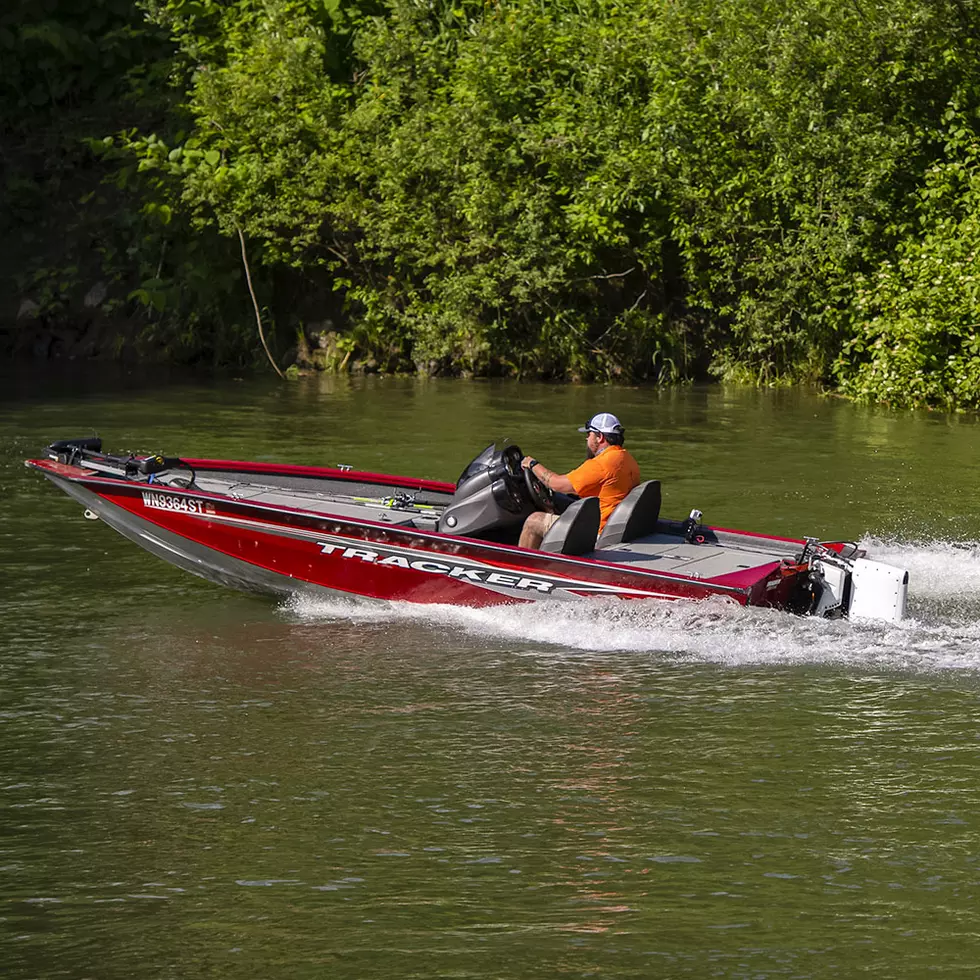
Electric or Gas? Louisiana Anglers May Have to Decide, and Soon

With as many electric vehicles on the road today, and many more to come, it seems like electrically propelled vehicles aren't just here to stay - they may be taking over! If you think that's hyperbole, think again. Maybe you've forgotten that automobile giant General Motors (GM) has vowed to make every single vehicle they produce electric by 2035, and it's a sure bet that pretty much every other manufacturer will follow suit.
That got me thinking about the other vehicles we use on a regular basis. We've already seen ATV's, side-by-sides, and motorcycles that you "plug in" instead of "fill up" - but what about your boat? How long will it be before the lakes and rivers we live amongst are filled with nearly-silent, battery powered bass boats? The answer is: It may not be very long at all.
Strangely enough, the big 2 and 4-cycle monsters that power virtually all of the boats anglers are using now gained their popularity during the fishing craze of the 60's and 70's - but before that, plenty of watercraft were powered by electric motors utilizing the cutting edge of battery technology at the time - lead-acid. In fact, Minn Kota (famous for their trolling motors) produced an electric outboard motor back in 1934!
Unfortunately, it took a whole lot of battery to get your boat moving. When high-powered gasoline engines entered mix, however, it seemed like the end of electric boats. A pilot could go much further and faster with a tank of liquid fuel and some pistons pounding behind him.
Since then, electrical propulsion has made leaps and bounds in terms of engineering. With the advent of better batteries (like lithium-ion, for example), computer-aided design, and some pretty fancy software - it looks like electric boats are poised for a comeback!
There are several companies that already manufacture electric outboards, though most are called that simply because they are the main-propulsion unit of smaller boats like a Bass-Cat or pirogue. Some, however, are going for the gusto! Companies like Torqeedo and Pure Watercraft are making electrically-powered outboards and inboards that perform at or near the levels of their gas-powered competition.
In fact, Pure Watercraft doesn't just sell the outboard and battery systems - they'll sell you the whole thing! A Tracker Pro Team 175 TXW Bass Boat (17’7” long), complete with a Pure Outboard motor, 1 battery, a Minn Kota trolling motor, a Lowrance color fish-finder with all of the bells and whistles, a charger, and a matching trailer will set you back a fairly reasonable $27,500. An extra battery will bump that number up to $36,000.
Right now, these electric outboards can't match the 250hp of Yamaha's SHO 250 - but it won't be long before they catch up. What they do have right now is an insane amount of features. Just think of a top-of-the-line, gas-powered bass boat like your old flip phone. Gets the job done, reliable, and something you're used to. In that scenario, boats like the ones Pure Watercraft is offering are like a smartphone. You can track every last shred of performance data from your setup in real time, make adjustments, watch your battery levels, and so much more - from your phone!
The real question isn't if we will see these on our lakes and rivers anytime soon - it's whether or not they will be embraced by anglers that have used gas their whole life (just like their daddy did). The other consideration is this: Will this hurt our beloved petroleum industry. Not only would they stand to lose money (which would mean jobs in our neck of the woods), what would happen to sponsorship dollars for fishing tournaments that traditionally come from big oil companies? Would they turn their back on us if we all started going electric?
Just by virtue of being electric, these outboards are ultra-quiet - giving anglers a clear advantage when it comes to sneaking up on fish, plus Pure Watercraft claims that the unit is sealed and virtually maintenance-free. There's no cooling loop in which invasive aquatic plants like Giant Salvinia can hide, no winterization needed, and no fluids to check - ever!
If the price and performance was comparable or better than the electric models, would you switch?
READ MORE: The 7 Sure Signs It's Spring in North Louisiana
LOOK: 50 images of winning moments from sports history
More From Highway 98.9









